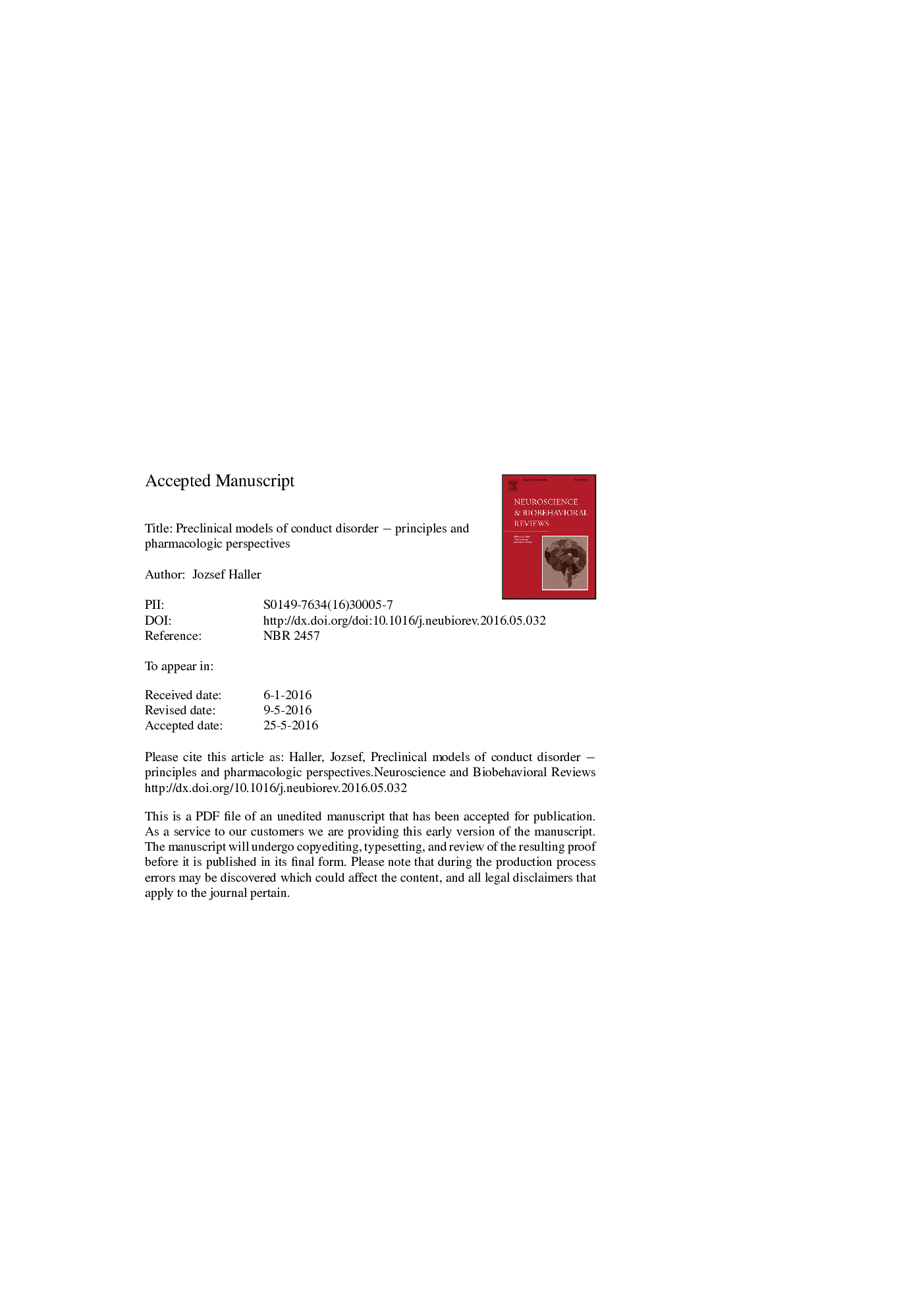| Article ID | Journal | Published Year | Pages | File Type |
|---|---|---|---|---|
| 7301606 | Neuroscience & Biobehavioral Reviews | 2018 | 29 Pages |
Abstract
The translational value of preclinical research was recently enhanced by abnormal aggression models, which focus on deviant behaviors induced by the exposure of rodents to etiological factors of aggression-related psychopathologies. Prompted by similar trials in other psychiatric disorders, here we investigate models of abnormal aggression from the perspective of DSM5 criteria. After proposing principles based on which analogies can be established between psychopathology symptoms and rodent behavioral dysfunctions, we show that rodents submitted to abnormal aggression models fulfill basic criteria of aggression-related psychopathologies; moreover, some models can be considered specific to particular disorders e.g. conduct disorder. We also show that abnormal and species-typical aggressions differ in terms of both brain mechanisms and pharmacological responsiveness, which mimics differences observed in psychiatric disorders. We conclude that evaluating abnormal aggression models from a DSM5 perspective is not only possible but also worthwhile, and such models may contribute to the development of novel treatment strategies not only for aggression as a symptom but also for specific aggression-related disorders or multi-symptom clusters at least.
Related Topics
Life Sciences
Neuroscience
Behavioral Neuroscience
Authors
Jozsef Haller,
